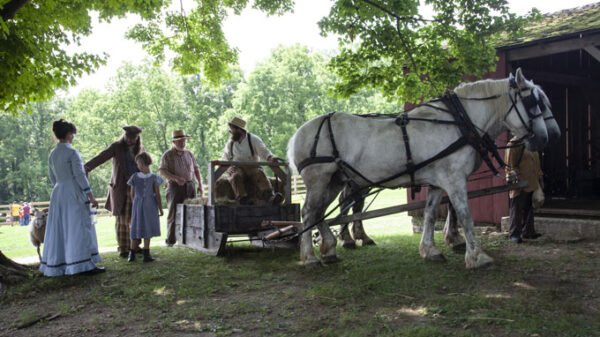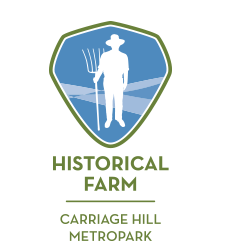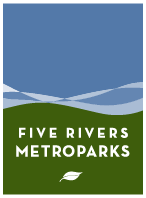Carriage Hill MetroPark
Historical Farm
Learn about our agricultural heritage on an 1880s farm


The Historical Farm at Carriage Hill MetroPark tells important stories that celebrate our agricultural heritage in the Miami Valley. This heritage includes a significant portion of our local landscape shaped by generations of farmers who groomed and cared for the land. Visitors to Carriage Hill Historical Farm will be immersed in 19th century farm life, a time when the sustainable farm, home and craft practices we see today were simply practical. Within the preserved house and farm buildings there are demonstrations of heritage skills and crafts by living-history interpreters. Activities such as blacksmithing, woodworking, cooking, quilting and canning are all demonstrated at the farm.
Throughout the week, the historical farmer carries out the work of the season, including harnessing and driving Percheron draft horses. The livestock on the farm are heritage breeds, such as Merino sheep, barred Plymouth Rock chickens and Jersey cows. Crops grown also are heritage varieties commonly found on this and other farms in the 1880s, including wheat, barley, rye and oats.
Since becoming a MetroPark, the Historical Farm has preserved the cultural landscape as a resource for education, preservation and heritage. The farm has been maintained to recreate the experiences one might have had on a typical day on the farm in the 1880s, a period chosen because it was a time of growth and prosperity for the Arnold family, who once lived on the farm. More than 46 family diaries and account books, as well as oral history, provide rich documentation of 19th century farm life for the Arnolds and are used in conjunction with the MetroParks’ mission of conservation to guide decisions on crops, livestock, building restoration and interpretive activities.
Things To Do
Visitor Center
The Visitor Center orients visitors to the 19th century through exhibits highlighting stories and lifestyles of the Arnold family. The center also includes a Children’s Interactive Classroom and a recreated house, barn and school room, all of which encourage hands-on learning.
Home Life
When entering the Daniel Arnold House, visitors will be greeted by historical interpreters dressed in the proper 1880s attire. Tours and daily talks on the history of the house are given. In addition, watch demonstrations ranging from wood stove cooking, baking, canning and butter churning to treadle machine sewing and weaving. Heirloom vegetables also are tended to in the family’s kitchen garden.
Farm and Animals
A combination of original 19th century buildings and reproductions depict what the farm looked like during 1880s. Heirloom crops and heritage breeds of animals help interpret historical agriculture practices. Depending on the season, visitors may witness living-history actors blacksmithing, woodworking, ice harvesting, meat smoking, threshing, shelling, grinding corn or making sorghum. The barn and adjacent fields are home to heritage breeds of farm animals such as draft horses, sheep, hogs and chickens.


